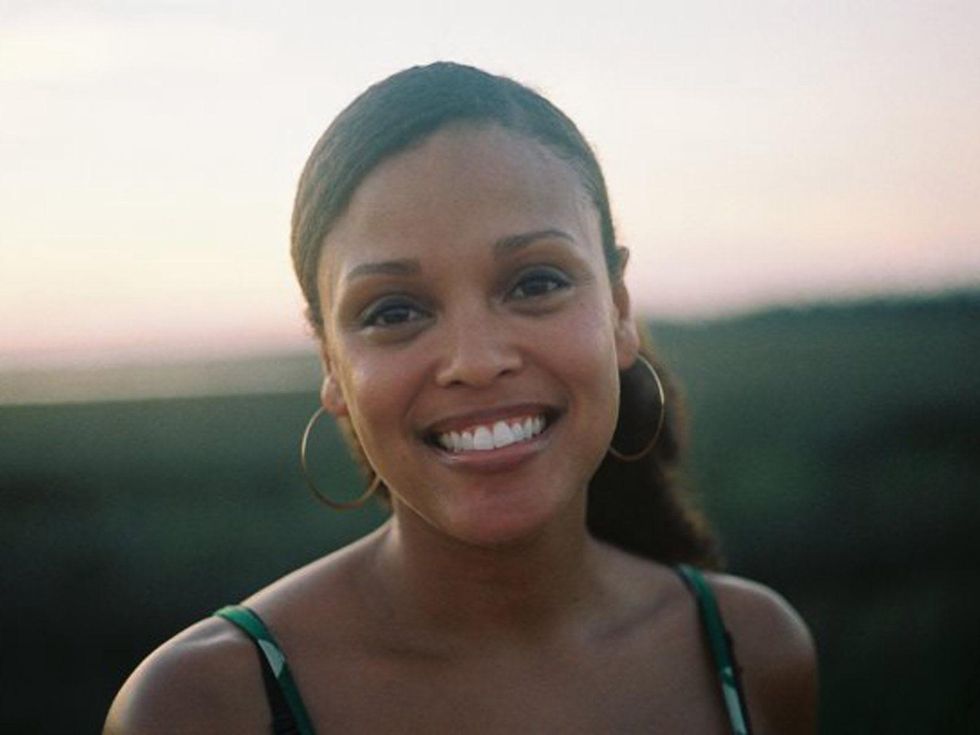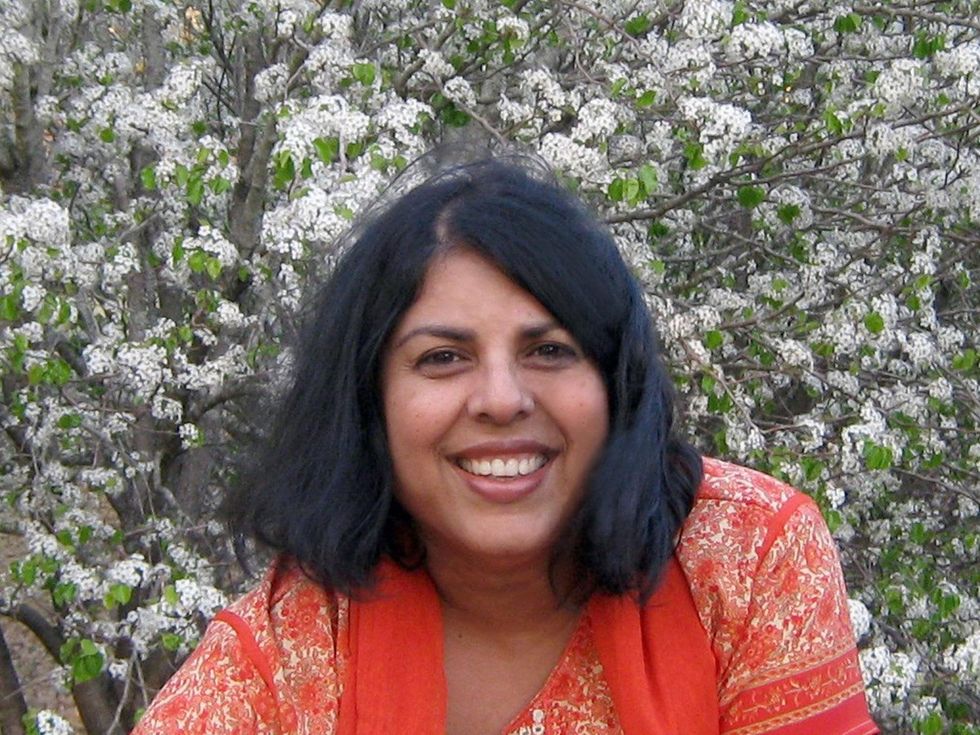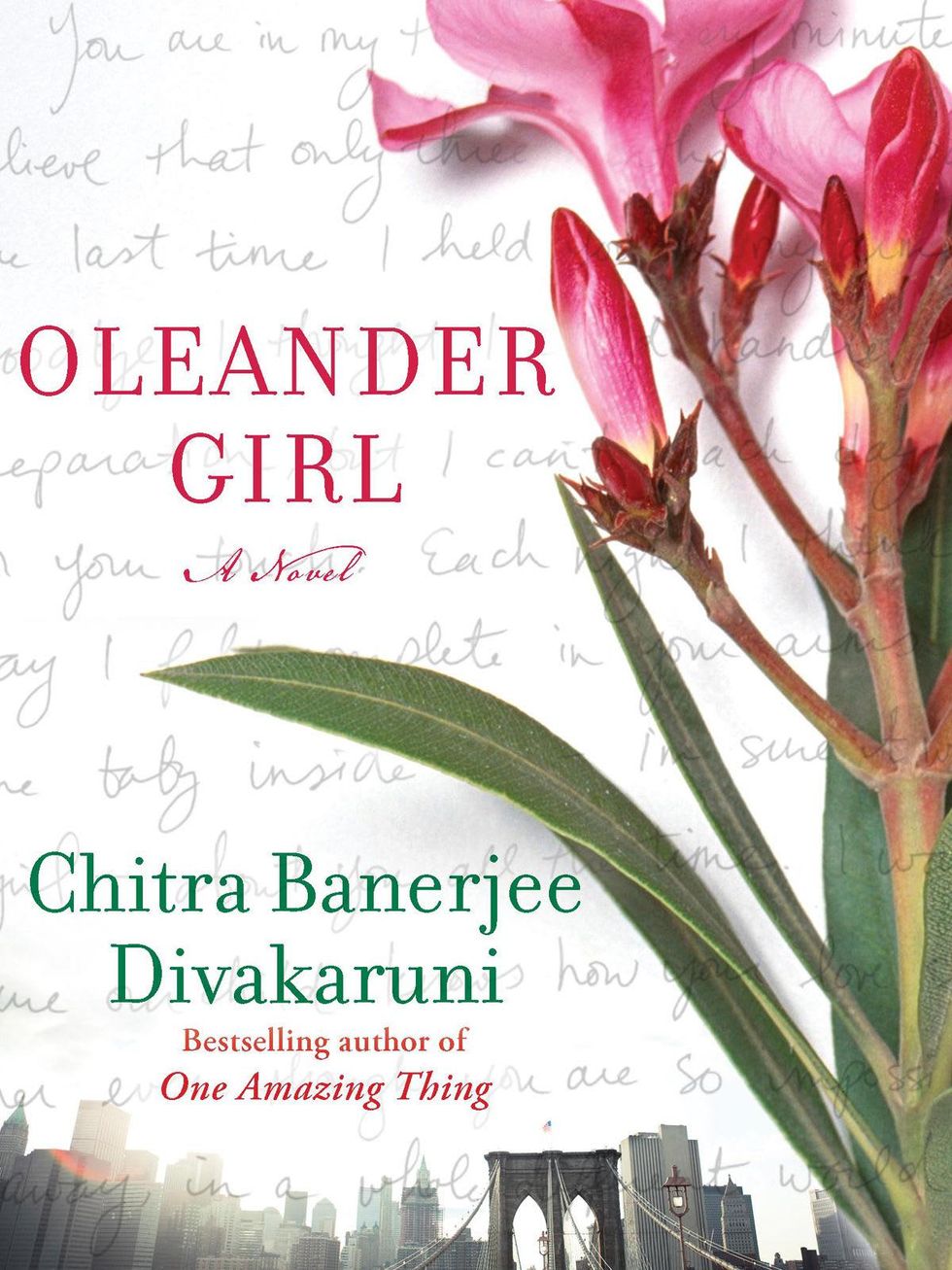Inprint Reading Series
Hurricane Katrina troubles and inspires National Book Award-winning author Jesmyn Ward
In 2005, author Jesmyn Ward was staying with her family in her hometown of DeLisle, Miss., when Hurricane Katrina stuck. The storm destroyed homes, devastated the community and silenced Ward as a fiction writer for two years.
When she finally found her authorial voice, she used some of that experience as inspiration for her story Salvage the Bones, an underdog of a novel that would go on to win one of the most prestigious awards for American fiction, the National Book Award.
At one point, Esch’s father even says that it’s the hurricanes with women’s names that are the worst.
In the novel, set 10 days before Hurricane Katrina, a poor, African-American 15-year old girl named Esch describes her daily life growing up surrounded by men, her brothers, their friends and her father. Her only female companions are memories of her deceased mother, her brother Skeetah’s pit bull China, who gives birth at the novel’s beginning, and the myths of Medea that Esch is reading for school.
Ward comes to Houston Monday for the Inprint Margarett Root Brown Reading Series. Before her visit, Ward talked to CultureMap about the novel, powerful females, and why her upcoming memoir will be her first and last.
CultureMap: You’ve described Salvage the Bones as being about a girl growing up in a world of men. Why did that particular situation call to you as a writer?
Jesmyn Ward: Everything that I write is set in the fictional version of the community that I grew up in. Esch’s situation is the polar opposite from how most of the young women that I know in my community grew up, where the whole community sort of functions as a matriarchy. It’s the women who hold families together and therefore that hold the community together in some ways.
So I think I was intrigued by the idea of Esch because her experience was so opposite of what I had seen, and I wondered what living in a world like that would be like for the kind of young women I grew up with.
CM: Yet, you seem so at ease creating that world of men in the novel, and especially the world and language of young men. Did you have points in your life when your able to observe that kind of closed culture of men?
JW: I grew up with a younger brother. I was always around him and his friends because he’s closest in age to me, out of my siblings. I grew up around a lot of women, but for a while when I was younger I was the only girl in the neighborhood of boys all around my age. I think that experience informs that drive to write about them, almost a curiosity about young men, about young, black men.
CM: For all the swagger the men and boys have in the novel, it’s the females who possess the most creative and destructive power. At one point, Esch’s father even says that it’s the hurricanes with women’s names that are the worst.
JW: When I set out to write the book one of the reasons I really did want to isolate her [Esch] and take away any female influences is so she had to turn to other things: like the hurricane, like the Greek myths of Medea, like [the pit bull] China, and her mother in order to understand what it means to be a woman, and also to be a mother.
It’s really interesting now when I look and see the things that I choice for her to look at for models, that they are very powerful entities. I think that’s a great reading of it, but I wasn’t consciously thinking of it when I wrote the book.
CM: You’ve said that your experience in Hurricane Katrina caused you to stop writing for a period. How does a writer turn such a horrific and silencing experience into the catalyst or fuel for story?
JW: After the hurricane, I went back to the University of Michigan. One of the professor who I worked with when I was there, studying, said, “This is your story. You should write about the hurricane.” It wasn’t until someone else, this older writer, told me, and in a way gave me permission to do it, that I actually thought about using it. . .I guess because it was so horrific, it didn’t feel like it was something I could write about.
Maybe it was time and distance that allowed me enough space to that I could access my creativity and funnel something of my experience of living through a category 5 hurricane into fiction. That [storm] chapter and the chapter afterwards, were hard to write because they brought me back to that experience. It’s a dark realization to have that everything you love can just be undone in a matter or hours. Everything, not only people, but the very landscape itself can just be erased.
CM: Your next book, due out in the fall, is a memoir. It’s about your brother?
JW: The premise is that basically between 2000 and 2004, five young black men who were friends of mine in my community died in different ways. The first was my brother in 2000. So the question I’m asking is why is there an epidemic of young men dying? Why would this happen in a place where I’m from? People associate those epidemic with places like Chicago or Detroit or New Orleans. They don’t associate those epidemics with places like where I’m from. I’m using my life and my family’s life as context to reach an answer for that question.
CM: Are there any similarities in the way you approached this memoir vs. the novel?
JW: The craft tools that make fiction engaging also make memoir engaging, so you want to develop your characters, have lots of detail and make sure your pacing is good. So all those things are the same. But it was a very different process from writing a novel.
I really had to focus on the work I was doing on each of the characters because each young man gets a chapter. I had to be very deliberate about the thematic concern of each chapter. They have to build, so in the end I really do reach an answer. . .I love writing novels, and I hated writing the memoir. I’m glad that I wrote it. I think it should be out in the world, but it was so painful and I hated it. I do not want to write another one.
Authors Jesmyn Ward and Amber Dermont will discuss their books that Inprint Margarett Brown Reading Series Monday at 7:30 p.m. at Zilkha Hall at the Hobby Center. General admission tickets are $5.



